In our Autumn Term exhibition we explore the themes of resistance, rights and refuge in relation to culture, politics and lived experience.
On 11 September 1973, a military coup overthrew Chile’s democratically elected socialist government and ushered forth 17 years of dictatorship.Tens of thousands were imprisoned and tortured, and more than 3,300 murdered and disappeared. In Britain, trade unionists, politicians, academics, students, musicians, church groups and others mobilised in diverse and expansive ways against the new regime. They formed part of a new global solidarity movement that shaped a human rights revolution and stimulated radical artistic and cultural production.
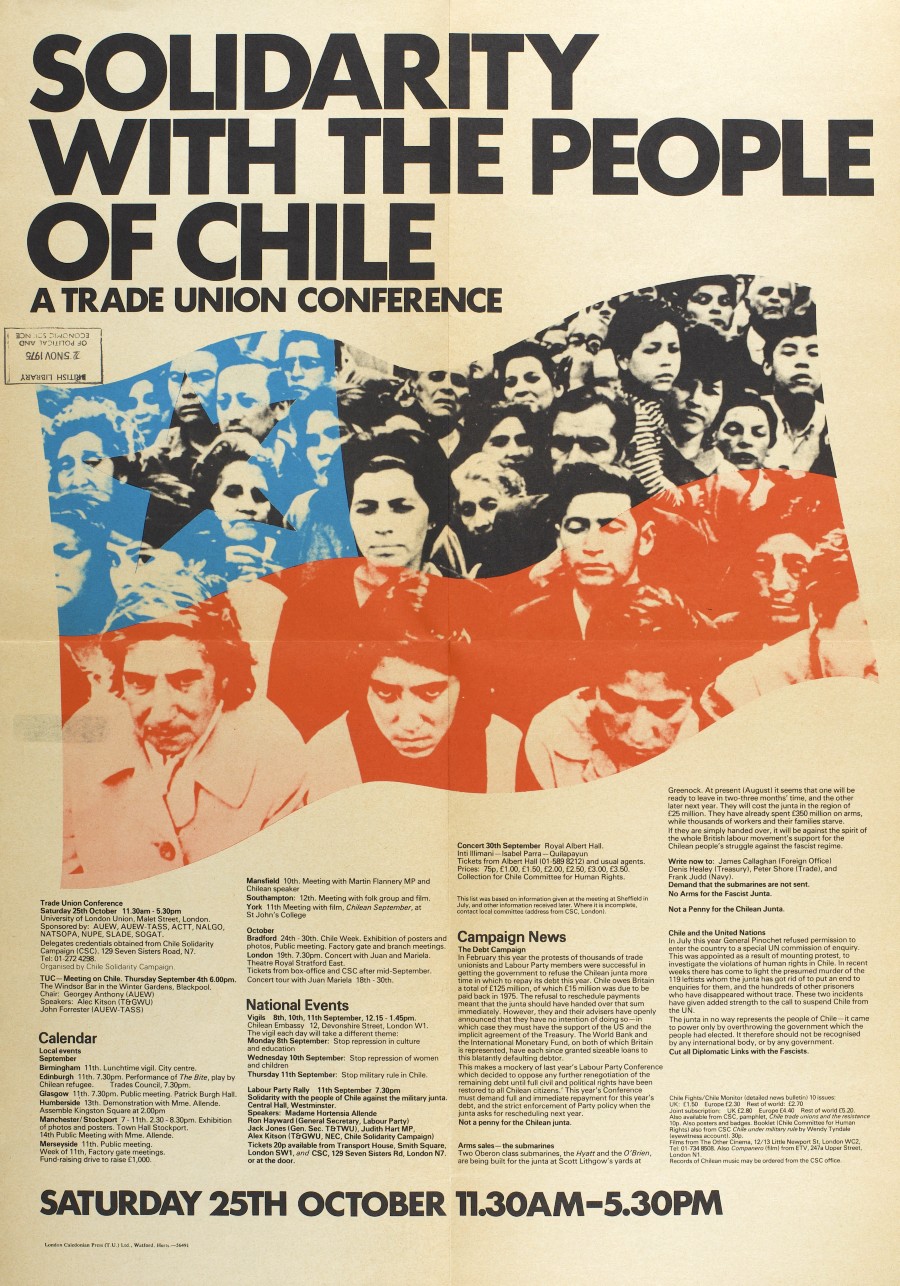 “Solidarity with the People of Chile: A Trade Union Conference,” Chile Fights, November 1975 – LSE Library
“Solidarity with the People of Chile: A Trade Union Conference,” Chile Fights, November 1975 – LSE Library
Chilean events, and the arrival of more than 3,000 Chilean refugees in Britain, stimulated conversations about human rights, democracy, and refuge. This exhibition explores these conversations and celebrates Chilean contributions to Britain 50 years on.
Curated by Dr Tanya Harmer and Gloria Miqueles in partnership with Dr Gillian Murphy at LSE Library and Paul Dudman, archivist at the Living Refugee Archive (LRA), University of East London.
With special thanks to the Valencia Family, Juan Cava, Paty Pons, Nidia Castro and Gloria Miqueles for their donations to the “Documenting Chile Collection” at the LRA.
An introduction to exhibition content
In this exhibition we explore the themes of resistance, rights and refuge in relation to culture, politics and lived experience. Following the 1973 coup, British and Chilean people collaborated to further the cause of democracy, human rights and dignity for refugees in need of safety. The exhibition remembers this collaboration and solidarity in 7 sections. Here are some of them:
Cultural Resistance
Culture played a pivotal role in anti-dictatorial resistance and solidarity. Music was a central component of solidarity activism and the sound of the New Chilean Song movement (Nueva Canción Chilena) rang out around Britain. Here is a vinyl of a recording of a concert performed at the Royal Albert Hall in 1975 in solidarity with Chile that is displayed in our exhibition. Visit the LSE Library Gallery to view other items and learn more about cultural resistance.
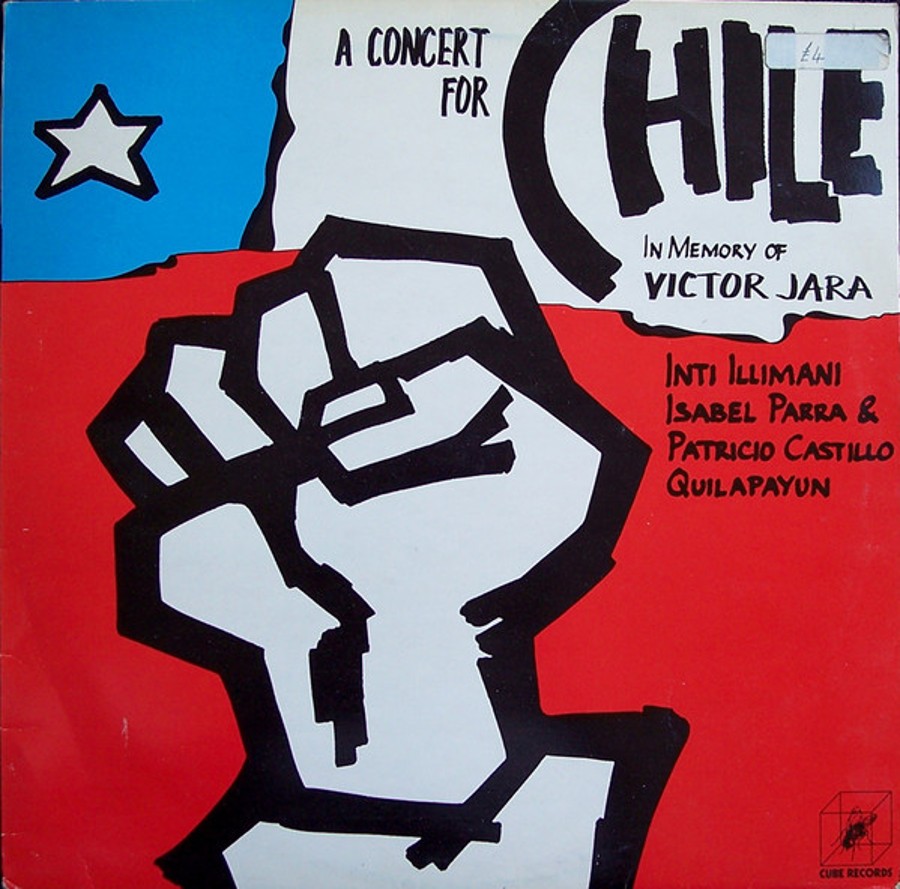 “A Concert for Chile,” Live at the Royal Albert Hall, 1975 – Documenting Chile Collection, Living Refugee Archive, University of East London
“A Concert for Chile,” Live at the Royal Albert Hall, 1975 – Documenting Chile Collection, Living Refugee Archive, University of East London
Solidarity As Resistance
British people were profoundly moved by Chilean events and their solidarity strengthened resistance to the Chilean dictatorship. Founded in late 1973, the Chile Solidarity Campaign (CSC) coordinated events and marches, raised money, ran boycott campaigns and increased public awareness. Visit us to learn more about the CSC and those who were involved in solidarity campaigns.
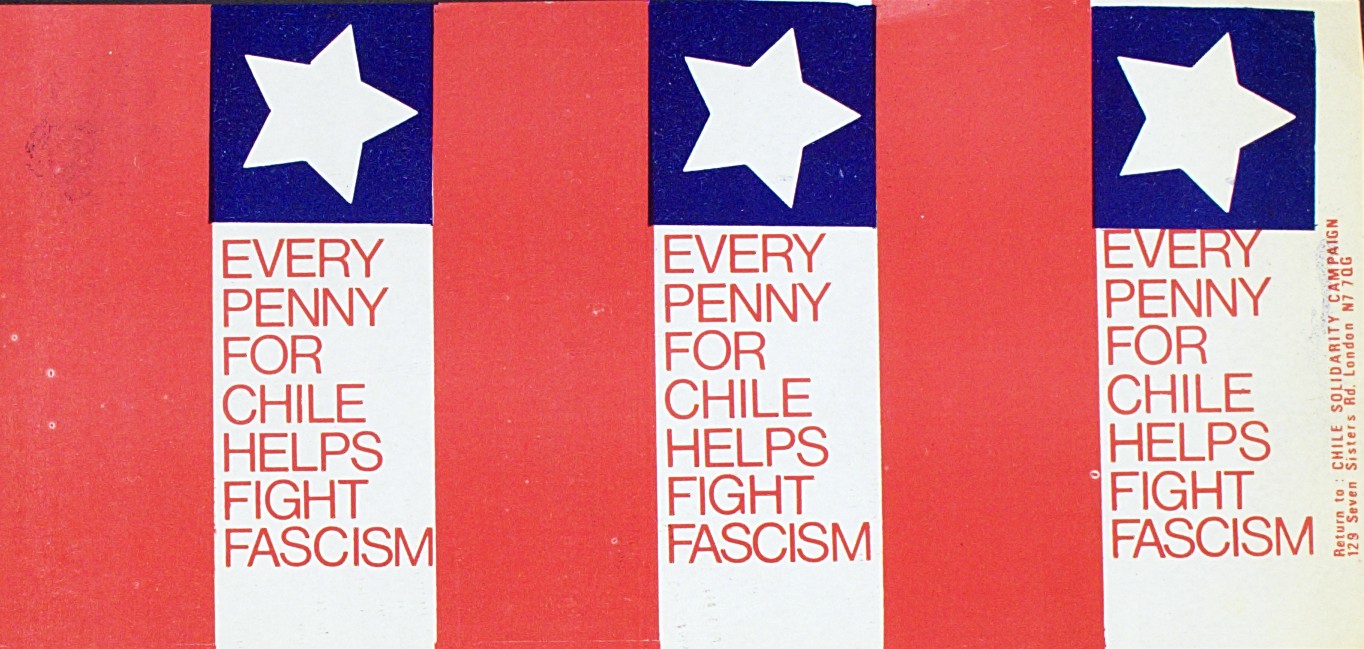 “Every Penny For Chile Helps Fight Fascism” – Documenting Chile Collection, Living Refugee Archive, University of East London
“Every Penny For Chile Helps Fight Fascism” – Documenting Chile Collection, Living Refugee Archive, University of East London
Recording Abuse
Recording what was happening in Chile was urgent and imperative as a means of fighting impunity and misinformation. By documenting the dictatorship’s human rights violations, Chilean exiles, solidarity activists, lawyers and human rights organisations such as Amnesty International raised awareness, helped apply international pressure on the dictatorship and ultimately saved lives. Established in Britain in 1974, the Chile Committee for Human Rights (CCHR), also played a vital role in denouncing violations, including the dictatorship’s use of “disappearance” as a devastating repressive tool. Make sure to visit us to read more and see many other items.
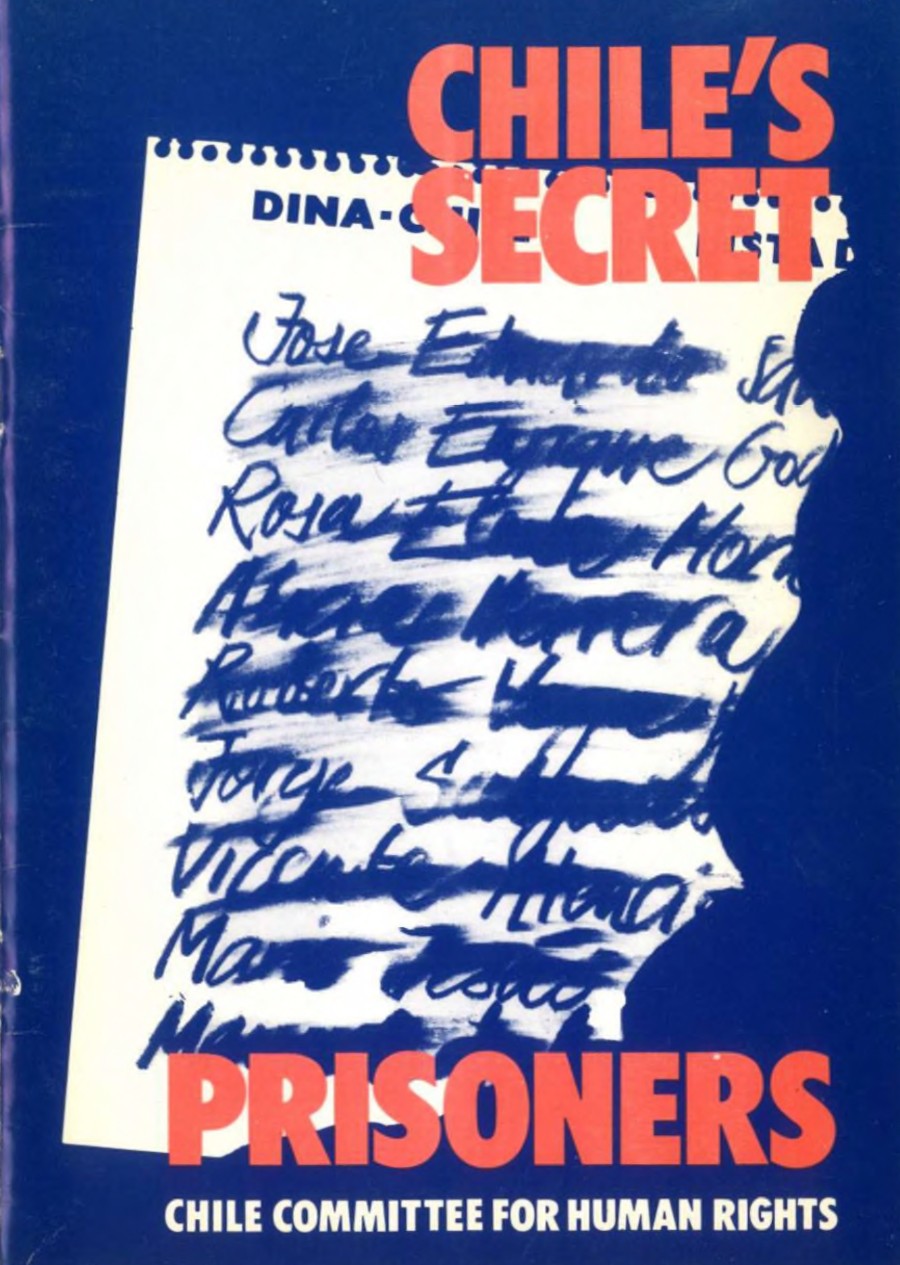 Chile Committee for Human Rights, Chile’s Secret Prisons, 1977 – LSE Library
Chile Committee for Human Rights, Chile’s Secret Prisons, 1977 – LSE Library
Chileans in Britain
Hundreds of thousands of Chileans were forced into exile after the coup, with more than 3,000 settling in Britain. Having survived violence and persecution, exiles built lives in Britain where they worked as teachers, engineers, human rights activists, local councillors, doctors, scientists and more. However, as this travel document for refugees in our exhibition reveals, they were expressly forbidden from returning home, which made separation from Chile both painful and more acute. Visit our exhibition to learn more about Chileans’ experience in Britain and their contributions to British society.
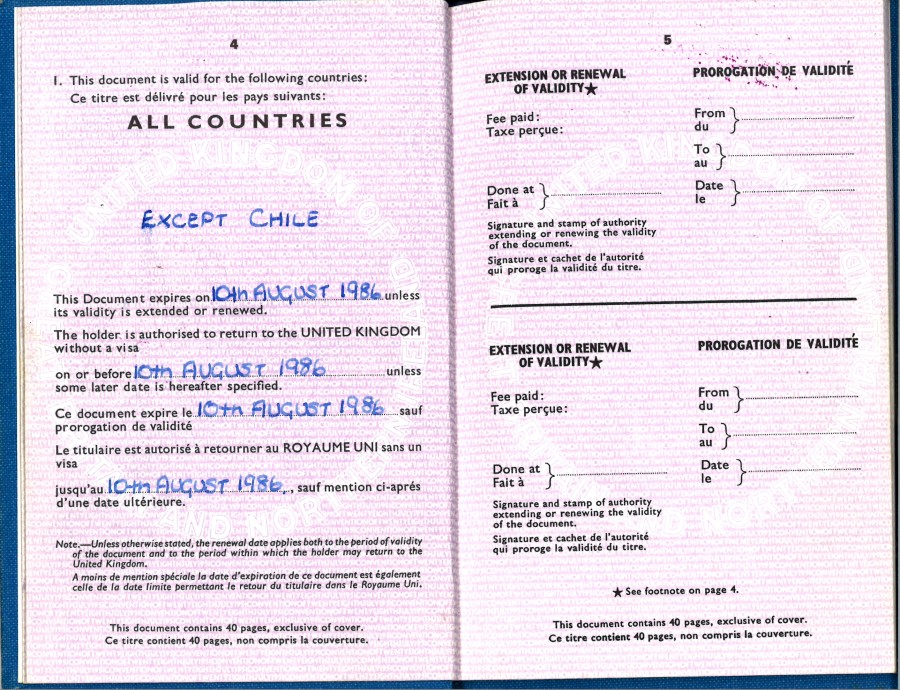 United Kingdom of Great Britain and Northern Ireland, “Travel Document” – Private Collection
United Kingdom of Great Britain and Northern Ireland, “Travel Document” – Private Collection
Exhibition events
In parallel to the exhibition LSE is hosting a conference and a series of public events and workshops to commemorate 50 years of British solidarity with Chile and Chileans’ contribution to Britain.
Collecting from you
Dr Tanya Harmer has a supporting website for this exhibition where you can read (and submit) your own testimonies and content.
Visit the complementary website to read and contribute.
Organise a tour
The Gallery is a small space and we can offer 15 minute tours on request and subject to availablity. Get in touch if you would like to arrange a tour.
Have any questions?
Contact us via email or find out other ways to get in touch.
Whilst we are hosting this listing, LSE Events does not take responsibility for the running and administration of this event. While we take responsible measures to ensure accurate information is given here this event is ultimately the responsibility of the organisation presenting the event.